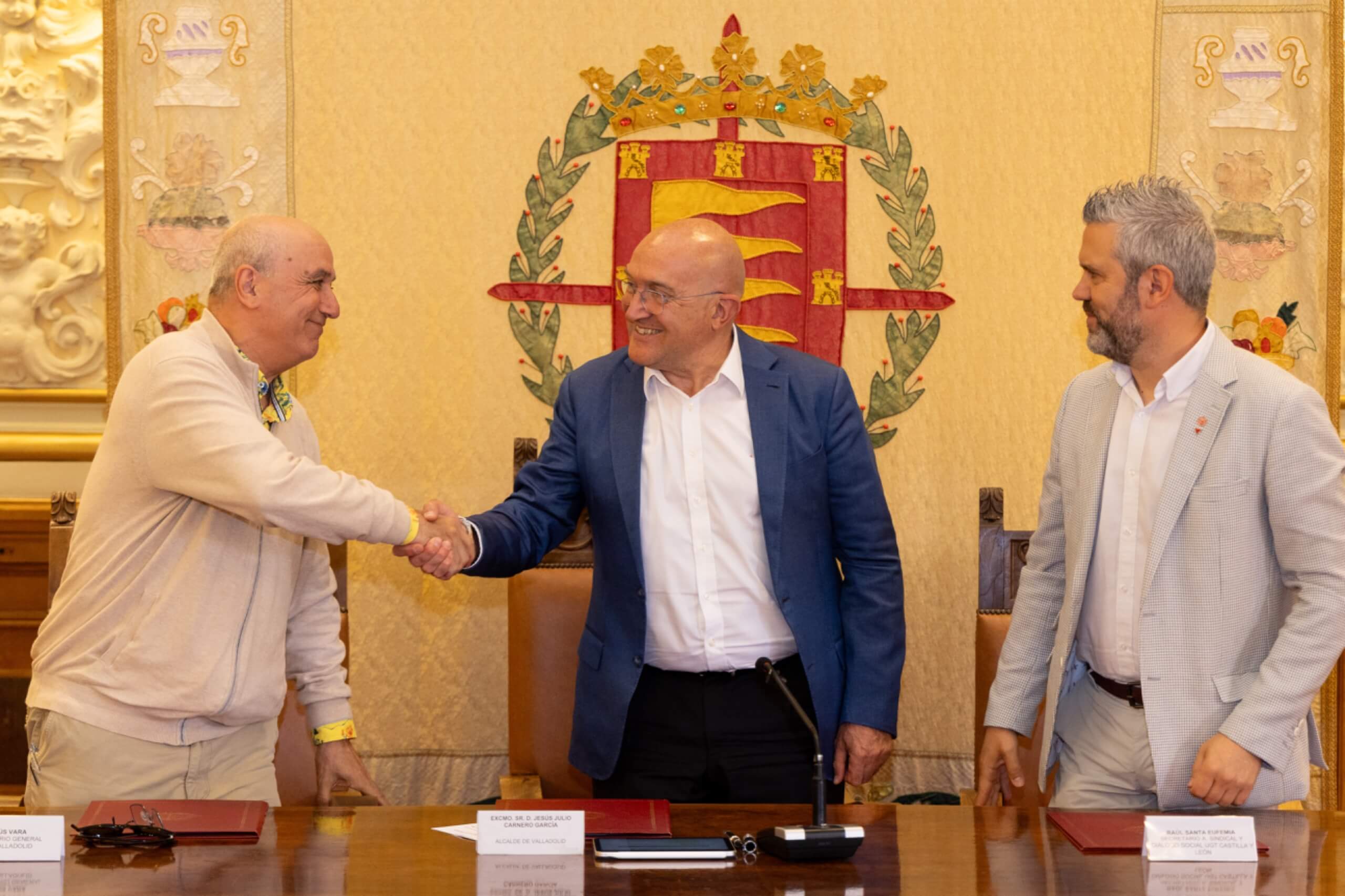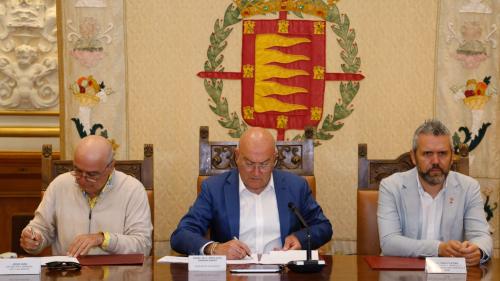
The collaboration agreement is part of the actions promoted by the Social Dialogue Council within the 4th Local Integrated Strategy for Economic Development, Employment and Social Policy.
It is in addition to Valladolid, Smart and Climate Neutral City in 2030 actions and involves both companies and workers of the local business fabric.
The City Council contributes €15,000, 93% of the funding of the agreement.
Valladolid City Mayor, Jesús Julio Carnero, and Jesús Vara, General Secretary of UGT Valladolid, have today signed a collaboration agreement to promote sustainable mobility in the workplace. The purpose of this agreement is to conduct a study on sustainable labour mobility in the local business fabric in 2024. Raúl Santa Eufemia, Secretary of Trade Union Action and Social Dialogue of UGT Castilla y León, was present at the event.
The agreement will be implemented between the months of June and November, where a conference will be held to present the results of the study and the possible measures to be implemented by all the actors involved (companies, workers, sustainability delegates and the City Council itself) in order to achieve a more sustainable labour mobility in Valladolid.
Carnero stressed that "through this agreement we seek collaboration with all economic and social agents to promote a model of a proximity city. Valladolid is already a close-knit city. Reinforcing sustainable mobility policies for work commuting to work and to companies is a step forward and also a decisive one to achieve a carbon-free city by 2030, an ambition pursued by the European Climate Mission to which our city is committed, and in which it is working together with the group of the 100 cities chosen by Europe for a healthier Valladolid with a better quality of life".
The City Council will provide €15,000, 93% of the budget foreseen in the agreement, which will be coordinated by the Agency for Innovation and Economic Development of Valladolid (IdeVa), ascribed to the Mayor's Office, and developed by the Secretary of Occupational Health and Environment of UGT Castilla y León, headed by María Fe Muñiz Queipo.
The agreement is part of the lines of work promoted by the Social Dialogue Council, which leads the implementation of measures that favour the economic and social progress in Valladolid within the 4th Local Integrated Strategy for Economic Development, Employment and Social Policy of October 2022.
Both the City Council and UGT are members of the Valladolid Social Dialogue Council and in this context the opportunity for collaboration arises to implement actions to promote sustainable mobility in the local workplace. In addition, with this strategy, Valladolid City Council is committed to ensuring that both companies and workers contribute to sustainable mobility policies, within the framework of the objectives of the City's Climate Mission.
Hence the importance of conducting a technical study focused on the labour mobility of workers in Small and Medium-Sized Enterprises (SMEs) and micro-SMEs in Valladolid. This is the objective of the agreement to analyse and establish a diagnosis of the current situation of Valladolid workers' mobility to their workplaces.
UGT will lead and coordinate the execution of the agreement due to its technical experience in the development of studies and methodologies for the professional qualification and training needs of the productive fabric in environmental matters. As a novelty, the figure of the 'sustainability delegates' of the companies, representing the workers, will be incorporated into the study.
Valladolid City Council, committed to sustainable mobility
In addition to being aligned with the local strategy, the agreement is in line with the 'Sustainable, Safe, Sustainable and Connected Mobility Strategy 2030'; a strategy that establishes the special importance and responsibility of city councils in promoting more sustainable mobility and, among others, identifies trade unions as agents to be taken into account to contribute their vision, especially in the promotion of sustainable work transport plans.

